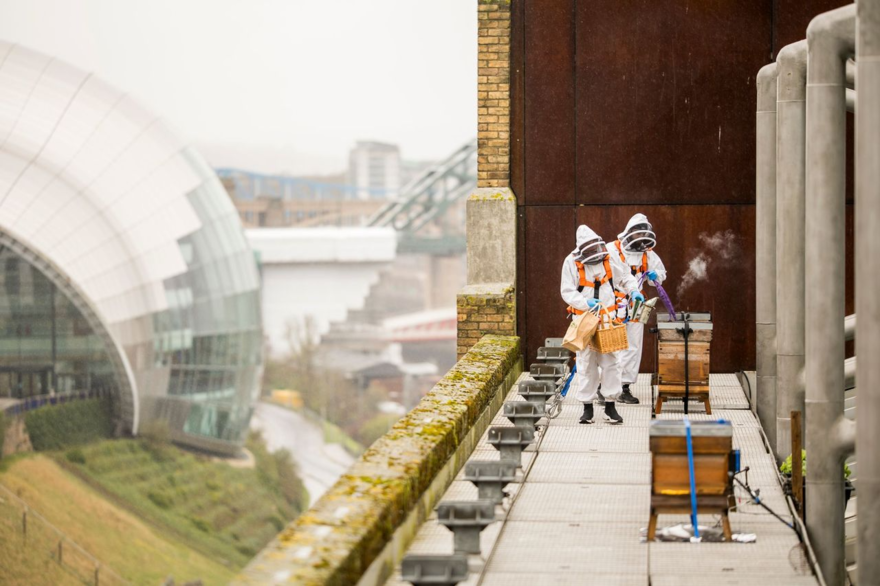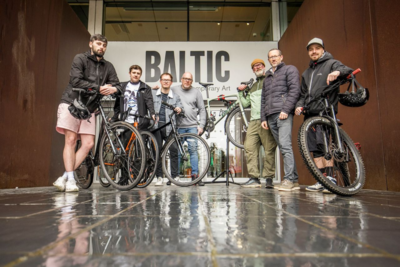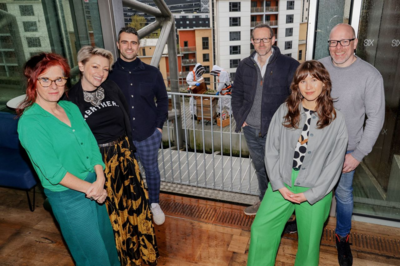Environmental Policy

The planet faces a climate emergency. We are already seeing the effects of global warming, pollution, habitat destruction and a loss of biodiversity.
At Baltic we are home to the furthest inland kittiwake colony in the world, 200,000 bees reside in our rooftop hives during the summer months, and we sit on the banks of the beautiful River Tyne – a constant reminder of our surrounding natural world.
We strive to be a leader in environmental sustainability and believe that a successful future for our organisation and visitors depends on the sustainability of the environment, communities and economies in which we operate.
We are committed to reducing our impact wherever possible, reusing resources and recycling waste while demonstrating leadership and integrating environmental considerations into all our practices.
We are committed to
- Understanding and educating ourselves and our employees on the impacts we have on the environment
- Setting environmental and quality objectives and targets and reviewing them to ensure continual improvement
- Encouraging sustainable consumption associated with our activities to minimise unnecessary waste of electricity, fuel and materials
- Considering the environmental credentials of our contractors and sourcing locally where practical and striving to improve and reduce these impacts
- Complying with all relevant environmental legislation and other requirements to which our organisation subscribes

Our impacts
We aim to achieve these commitments by identifying and, where possible, reducing the negative environmental impacts of our activities in:
- Our energy use, water use and waste
- Our visitor, business travel and staff commuting
- Our transportation of artworks and associated artists and technicians travel
- Our contractors and service provider’s transportation use to and from site - local contractors will be used where possible to reduce transport
- Our use of building materials for exhibition installs, use, waste and transportation
- Our buildings operation, maintenance and refurbishments, use, waste and transportation
- Our waste management systems
- Our trading use, waste and transportation
- Our office processes and procurement

Our Commitments
Operations
- Meet, and where appropriate, exceed the requirements of all relevant environmental management legislation
- Manage and reduce water waste
- Manage and reduce energy usage, and seek renewable alternatives where available
- Formulate and implement a sustainable procurement plan
- Continue to recycle at source waste plastic, glass, cardboard, paper, metal, considering a lifecycle approach to our resource use
- Maintain a capital plan which will reduce utilities and forefront environmental impacts
- Monitor noise pollution
Community & Collaboration
- Seek to work with local and sustainable contractors where possible
- Ensure that contractors comply with relevant environmental responsibility requirements for materials and packaging and the circular economy is considered
- Work with our catering partners Fresh Element to reduce food waste and to provide food recycling processes
- Engage in staff training to increase awareness of Baltic’s environmental impacts across a range of its operational activities, ensuring staff are fully competent to control the activities for which they are responsible, and encourage further learning about our environmental impact
- Communicate our environmental impacts and the work we are undertaking to address these to Baltic staff, visitors and other stakeholders
- Use our learning and exhibitions programme platform to highlight environmental concerns where appropriate
- Continue working with Gateshead District Energy Scheme, winner of the Visionary Project Award by the Association for Decentralised Energy, to reduce use of carbon energy.
Innovation
- Research and seek opportunities to make use of technological and operational innovation to manage the above environmental impacts throughout the building
- Promote biodiversity and monitor and reduce any potential damage to ecosystems



